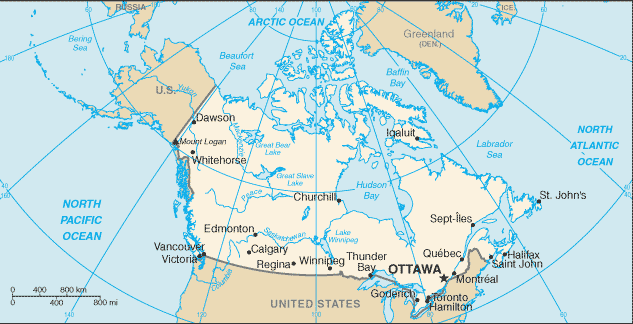 Pretty ironic timing. Just as Canada is moving toward legal cannabis, dispensaries are coming under more legal pressure and being forced to shut down—most recently in Toronto. On Dec. 7, the city's Cannabis Culture outlet—which had been targeted in a police raid back in March—finally shut its doors, and seemingly this time for good. The Ottawa Citizen reports that police arrived at the popular Cannabis Culture dispensary on Bank Street with a bailiff, who changed the locks and posted a notice on the door saying the lease was being terminated.
Pretty ironic timing. Just as Canada is moving toward legal cannabis, dispensaries are coming under more legal pressure and being forced to shut down—most recently in Toronto. On Dec. 7, the city's Cannabis Culture outlet—which had been targeted in a police raid back in March—finally shut its doors, and seemingly this time for good. The Ottawa Citizen reports that police arrived at the popular Cannabis Culture dispensary on Bank Street with a bailiff, who changed the locks and posted a notice on the door saying the lease was being terminated.
One of the landlords said he and his business partner decided they had little choice, given an impending Ontario law aimed at ridding the province of independent cannabis dispensaries. The new law will impose big fines or even prison time for landlords who rent to illegal pot shops.
The closure of the dispensary came just a week after Canada's House of Commons voted overwhelmingly to approve the cannabis legalization legislation, Bill C-45. The Cannabis Act now moves on to the Senate. It provides for limited homegrown, and calls for sales to be regulated at the provincial level.
Government monopolies in booze (and bud) before Supreme Court
Which brings us to another development that could determine the shape of Canada's new cannabis order. On Dec. 6, the country's Supreme Court began hearing arguments in a case that could mean the end of government monopolies in alcohol. If the justices rule in favor of a New Brunswick man fighting against provincial liquor monopolies, the decision will almost certainly spark litigation across Canada seeking to do away with similar government-run corporations for cannabis.
"It would mean big changes—a more free and fair cannabis industry," Jack Lloyd, a lawyers representing cannabis activists who received intervener status in the case, told The Canadian Press.
The case began in 2012, when the Mounites arrested Gerard Comeau on his return to New Brunswick after he had bought 14 cases of beer and two bottles of whisky in Quebec He was fined for violating New Brunswick law, which limits the amount of booze that can be brought into the province from elsewhere in Canada. Comeau contested the ticket, arguing that Sec. 121 of Canada's Constitution Act of 1867 mandates the free passage of all domestic goods across all provinces.
Brian Lee Crowley of the Macdonald-Laurier Institute, an Ottawa think-tank, said a Supreme Court ruling in favor of Comeau would prevent provinces from discriminating between Canadian suppliers of alcohol—or cannabis. A Comeau win "would make provinces not be able to prevent you from, say, mail-ordering marijuana from someone in another part of the country," Crowley said in an interview with The Canadian Press.
Canada is rapidly shaping up as the world's biggest test case on whether legalization will really mean more freedom for small producers and independent outlets, or merely clear the way for corporate cannabis.
Cross-post to High Times
Graphic: Perry-Castañeda Library Map Collection







Recent comments
3 weeks 5 hours ago
3 weeks 12 hours ago
6 weeks 1 day ago
7 weeks 11 hours ago
11 weeks 19 hours ago
14 weeks 6 days ago
18 weeks 6 days ago
19 weeks 4 days ago
29 weeks 4 days ago
33 weeks 5 days ago